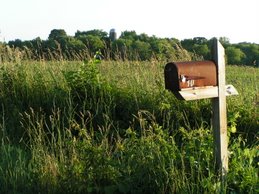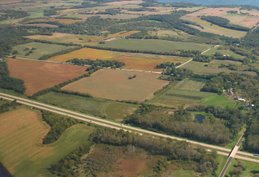Testimony by Phyllis Hasbrouck, Chair of the West Waubesa Preservation Coalition, from Aug. 7th Public Hearing:
Good evening. The West Waubesa Preservation Coalition thinks it is great to have a long-term urban growth boundary, but we disagree with including the Northeast Neighborhood in the boundary, and with ignoring the needs of the farmers in Stoner Prairie. We do not want that, or any other good farmland developed, but something is missing from this plan, and that is some solutions for farmers who want to, or must, stay in farming.
We have spoken to farmers who have large debts, for modernization costs incurred at a time when they were inside a FUDA, and thus a great credit risk. They have no pension, and no other property besides the farm. Some of them have serious health issues, and they have to pay their own health insurance, which is one case is $1965 per month for a married couple! They want to retire, but their high debt load and proximity to urban development makes their farm and business less-than-desirable for others farmers to buy. If they are not allowed to sell to developers, but can’t find a farm buyer, they are trapped.
This is no way to treat the people who feed us! Some will say that they do not have a God-given right to be millionaires, and I agree with that. But they should not retire from decades of farming as paupers either. Every level of government should be working on ways to make farming a viable way of life, with retirement a possibility.
What could Fitchburg do? For the long term, it could set up a PDR program, so that farmers are relieved from development pressure, and so that its 50-year plan is not a joke that can be overturned every 2 years when new alders are elected. If a PDR program were adopted at the same time as a 50-year boundary, it would certainly lessen political opposition, since every landowner would have some form of compensation available.
And right now, even without a PDR program, it is possible for groups like the Natural Heritage Land Trust to purchase development rights, as long as they have a willing partner in the city government.
I see no reason why the Community Economic Development Authority of Fitchburg can’t make it their priority to assist agricultural businesses to come, stay, and prosper in Fitchburg. For instance, why not look for a solution to both the ATC problem and the manure problem, by creating a TIF to fund a cooperative methane digester that would create electricity for the city? Why not let farmers apply for low cost loans under the city’s umbrella? Could the city save Fitchburg farmers money by creating a health insurance pool for them?
What about reverse mortgages or recharge rights? These are possibilities that the CEDA could look into. There are so many things that the city could do, and the West Waubesa Preservation Coalition would be happy to help with research and organizing.
I suggest that if you want to have a minimum of controversy and political fallout from these momentous decisions, you take the time to come up with win-win solutions, where no one is left feeling like they totally lost. There is no hurry. In the east, there is no housing shortage that decrees that the Northeast Neighborhood Plan be quickly approved. Quite the contrary! Every day the stock market reels some more from the slump in housing and rise in foreclosures.
In the west, there is no need to rush through the Urban Growth Boundary that cuts people off from long-expected compensation without fashioning some alternative. Yes, the Comprehensive Plan is supposed to be done by 2010, but already some communities are applying for extensions. And a lot could be accomplished in two and a quarter years if CEDA and other government bodies made it their priority to explore what other cities have done, and to come up with proposals for Fitchburg.
Wednesday, August 8, 2007
WWPC Looks for Win-Win Solutions
Posted by
Terry Carpenter
at
10:45 PM
![]()
Categories NEN, Plan Comm Meetings, Public Hearings



No comments:
Post a Comment